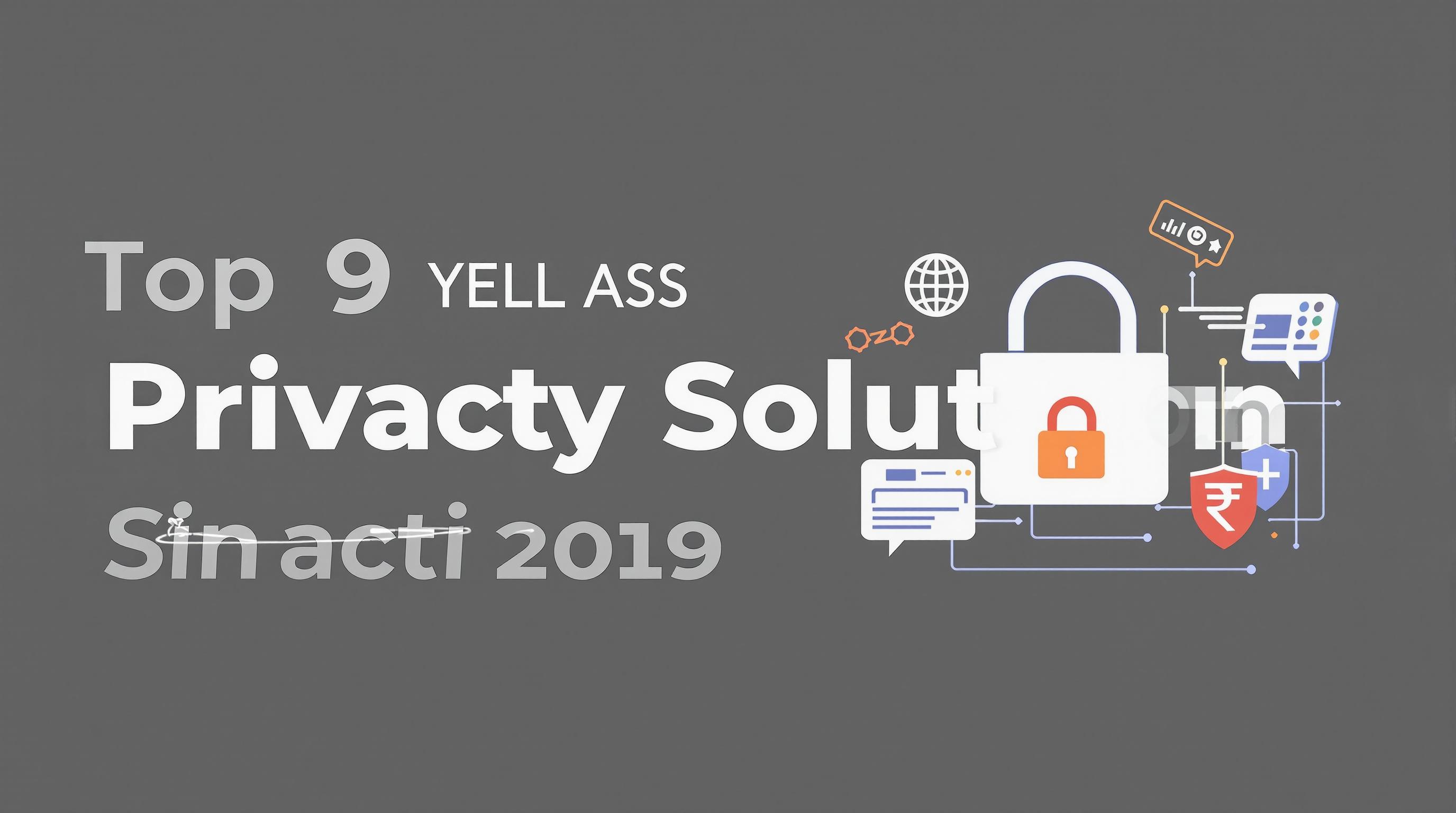Related Articles
- Unraveling the Silent Influence of Biometric Data on European Privacy Safeguards and Compliance Challenges
- Top 6 Game-Changing Franchise Analytics Platforms Launched Since 2019 for Strategic Brand Expansion
- Hidden Pitfalls in Using NDA Templates for Cross-Cultural Tech Collaborations: Lessons from Unexpected Legal Quagmires
- Top 6 Emerging AI-Powered Negotiation Tools Transforming Product Partnership Deals Since 2019
- Top 6 Under-the-Radar Business Licensing Tools Released Since 2019 That Outsmart Traditional Systems
- How Emerging Environmental Regulations Are Secretly Reshaping Small Business Structures in Unexpected Ways
Top 9 Cutting-Edge Privacy Solutions Launched Since 2019: A Detailed Comparison and Buyer’s Guide
Top 9 Cutting-Edge Privacy Solutions Launched Since 2019: A Detailed Comparison and Buyer’s Guide
Top 9 Cutting-Edge Privacy Solutions Launched Since 2019: A Detailed Comparison and Buyer’s Guide
In an era where data breaches and digital surveillance are increasingly common, privacy solutions have become essential tools for individuals and businesses alike. Since 2019, the market has witnessed a surge of innovative privacy technologies designed to protect user data, ensure anonymity, and provide secure communication channels. This article explores nine of the most impactful privacy solutions introduced in recent years, offering a detailed comparison and guidance for prospective buyers.
Privacy technology now encompasses a broad spectrum of products, including secure messaging apps, encryption services, VPNs, and decentralized platforms. Each solution addresses distinct privacy concerns, from encrypting emails and anonymizing web traffic to preventing tracking by advertisers. Understanding the unique features, benefits, and limitations of these products is crucial to selecting the right tool for your specific privacy needs.
Our buyer’s guide breaks down the technical strengths, ease of use, pricing, and compatibility of these cutting-edge privacy solutions. Whether you are an individual wanting to safeguard personal communications or a business aiming to comply with stringent data protection regulations, this guide will help you make informed decisions backed by the latest developments in digital privacy technology.
1. Signal – The Gold Standard in Encrypted Messaging
Launched well before 2019 but continuously updated, Signal has cemented its position as the premier encrypted messaging app. Its open-source protocol guarantees end-to-end encryption for texts, calls, and video chats, making it nearly impossible for third parties to intercept messages.
Since 2019, Signal has integrated features like disappearing messages and screen security, which prevent message previews outside the app. Its minimal data retention policy (storing only the phone number) places user privacy above all else. Furthermore, endorsements from privacy experts and whistleblowers underscore its credibility.
For buyers, Signal is free and supports all major platforms including iOS, Android, and desktops. It is an excellent choice for users emphasizing robust encryption without sacrificing usability. However, its reliance on phone numbers can be a drawback for users seeking total anonymity.
2. Proton Mail – Secure Email Gets a Major Upgrade
Proton Mail launched a revamped service in recent years that reinforced its standing as a leading secure email provider. Based in Switzerland, Proton Mail benefits from strong data protection laws and offers zero-access encryption, meaning even the provider cannot read user emails.
Innovations since 2019 include advanced anti-phishing measures, compatibility with encrypted calendars, and integration with Proton VPN for increased privacy. Its user-friendly interface makes encrypted emailing accessible to both novices and security-conscious professionals.
Proton Mail offers free and tiered paid plans with added features like custom domains and increased storage. Buyers seeking a secure alternative to mainstream email providers will find Proton Mail compelling, especially for sensitive communications requiring stringent confidentiality.
3. Tor Browser 10+ – Anonymity Enhanced Through Evolution
The Tor Project has steadily improved its browser since 2019 to strengthen users’ anonymity on the internet. Tor routes traffic through multiple relays, effectively anonymizing IP addresses and bypassing censorship or geo-restrictions.
Recent iterations introduced performance optimizations, improved resistance to fingerprinting, and better support for HTTPS Everywhere to enforce secure website connections. Tor’s open-source nature and active developer community ensure persistent innovation in anti-surveillance technology.
For privacy-conscious buyers, the free Tor Browser is a critical tool for browsing anonymously, particularly in restrictive environments. However, users should be aware of its slower browsing speeds and incompatibility with some web services due to its traffic routing method.
4. DuckDuckGo Privacy Essentials – Simplifying Privacy for the Masses
DuckDuckGo, known for its privacy-focused search engine, released its Privacy Essentials browser extension and mobile app with significant updates after 2019. These tools block hidden trackers and enforce encryption on sites that support HTTPS.
The solution boasts a user-friendly interface and straightforward privacy grade ratings, making it easy for average users to understand and enhance their online privacy without technical expertise. Continuous tracker database updates improve protection effectiveness across millions of websites.
Available free for major browsers and on mobile, DuckDuckGo appeals to users seeking simple privacy improvements during everyday web browsing. While it doesn’t provide full anonymity like Tor, its lightweight approach offers substantial protection with minimal user effort.
5. Nextcloud – Privacy-Focused Self-Hosting for Data Control
Nextcloud provides a self-hosted cloud storage platform emphasizing user data sovereignty. Since 2019, it has added end-to-end encryption capabilities and enhanced collaboration features that rival mainstream cloud providers but without relinquishing control to third parties.
Its modular architecture supports file sharing, calendar syncing, and secure communication via built-in chat with encryption. Enterprises and privacy-minded individuals can host Nextcloud on their own servers or trusted providers, ensuring compliance with internal data policies.
While Nextcloud requires more setup than typical cloud services, buyers benefit from extensive customization and transparent privacy guarantees. It’s especially suitable for businesses and advanced users prioritizing data ownership over convenience.
6. Mozilla VPN – Trusted Privacy from a Familiar Name
Mozilla launched its VPN service in recent years, leveraging its reputation for privacy-focused software like Firefox. The VPN offers strong encryption, a no-logs policy, and usage on multiple devices, enhancing user security on public and private networks.
Continuous updates improved server coverage and speeds, and Mozilla’s open audit reports build trust in their privacy claims. Integrated seamlessly with Firefox browser on desktops and mobile, Mozilla VPN simplifies securing online activity without complex configuration.
The subscription-based service provides good value for users preferring established brands with transparent practices. However, it currently supports only a limited number of countries compared to some competitors, which buyers should consider if global coverage is critical.
7. Brave Browser – Combining Privacy and Performance
Brave Browser, introduced before 2019 but gaining major traction subsequently, is designed to block ads and trackers by default while offering fast browsing speeds. Its unique privacy-centric approach integrates with Tor for anonymous tabs and rewards users with BAT tokens for viewing privacy-respecting ads.
Upgrades since 2019 improved fingerprinting resistance, script blocking, and seamless integration with decentralized web technologies. These features position Brave as a powerful option for users wanting both privacy and an enhanced internet experience.
Brave is free and supports all major platforms, making it accessible for a wide user base. Buyers interested in a balance between privacy, speed, and innovative web monetization options will find Brave particularly attractive.
8. Tails OS – Privacy-First Operating System for High-Stakes Users
Tails (The Amnesic Incognito Live System) is a live operating system that runs from a USB stick or DVD, designed to leave no traces on the host computer. Since 2019, it has continued to refine its security features to thwart surveillance and forensic analysis.
It routes all internet traffic through Tor, offers state-of-the-art encryption tools, and includes secure file deletion utilities. Because it operates independently of the installed OS, Tails is ideal for whistleblowers, journalists, and privacy experts requiring maximal anonymity.
Though Tails demands greater technical skill and slower performance, it remains unmatched in comprehensive privacy protection. Buyers with high confidentiality needs and experience in security practices will benefit significantly from adopting Tails.
9. Privacy.com – Virtual Cards to Keep Payment Data Secure
Privacy.com launched its service focusing on financial privacy by generating virtual debit cards linked to a user’s bank account. These cards can be limited by spending amount, merchant, or even locked after a single use, greatly reducing fraud risk.
Since 2019, Privacy.com has added features supporting team accounts and integrations with popular financial tools. Its secure payment model prevents merchants from accessing a user’s real card details while maintaining simplicity and compatibility with most online platforms.
This service is particularly valuable for buyers frequently shopping online or concerned about payment data being stolen or misused. With a free tier and premium options, Privacy.com offers flexible plans catering to individual and commercial users alike.
Conclusion: Navigating the Future of Privacy Technology
The privacy solutions launched or enhanced since 2019 reflect a growing commitment to user empowerment in a rapidly evolving digital landscape. From encrypted messaging to decentralized storage, these tools address diverse privacy challenges and user preferences. Evaluating your privacy priorities—be it anonymity, ease of use, or financial security—will help narrow the options best suited to your needs.
Remember that no single solution can guarantee absolute privacy; combining several technologies, such as using a secure browser alongside a VPN and encrypted communications, often yields the most effective protection. Staying informed about updates and emerging threats is equally critical as technology advances.
For further information on digital privacy, reputable sources such as the Electronic Frontier Foundation (EFF) and the Tor Project (torproject.org) offer detailed guides and analyses. Armed with the right tools and knowledge, users can confidently navigate the digital world while safeguarding their personal information.



